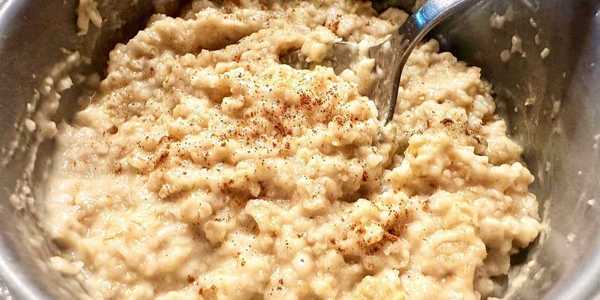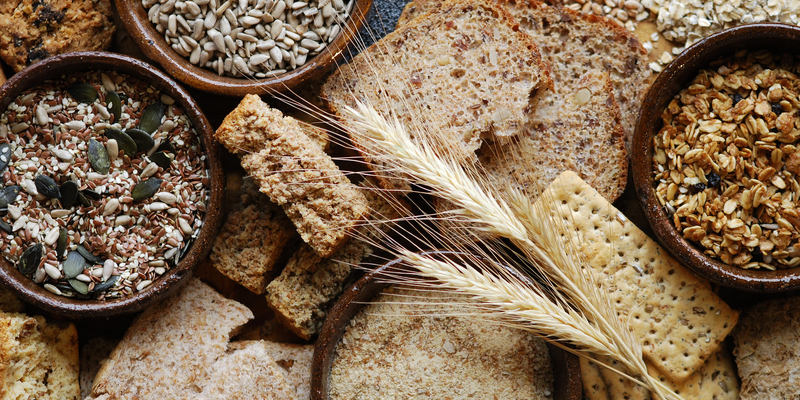15 Foods That Can Help Relieve GERD Symptoms
Discover 15 soothing foods that effectively relieve GERD symptoms. Make informed dietary choices for better digestive health today!
Gastroesophageal Reflux Disease (GERD) is a chronic ailment marked by acid reflux, which results in discomfort and a range of symptoms such as heartburn and digestive complications. While medications are often employed to manage GERD, the role of diet is equally crucial in alleviating symptoms. Specific foods, like those high in fat, caffeine, and acidity, can either exacerbate the condition or provide soothing relief. This article outlines 15 foods that can help mitigate GERD symptoms, enabling individuals to make informed dietary choices for improved digestive health.
A Selection of 15 Foods for GERD Relief
Acid reflux and GERD can severely hinder someone's quality of life. Hence, understanding dietary preferences that relieve symptoms is essential for effective management. Below is a curated list of 15 foods recognized for their potential to soothe GERD symptoms.
1. Oatmeal

Oatmeal is an excellent breakfast choice for those struggling with GERD due to its acid-absorbing qualities. It is rich in soluble fiber, which aids in absorbing excess stomach acid, preventing it from reaching the esophagus. This soothing food can be consumed plain or enhanced with fruits, nuts, or honey for added flavor, all while keeping symptoms at bay.
2. Ginger
Renowned for its anti-inflammatory characteristics, ginger greatly benefits digestive health. This root can settle the stomach and alleviate nausea, making it a valuable meal addition. Fresh ginger can be integrated into stir-fries, soups, or herbal teas, with ginger tea providing a particularly soothing option to help manage GERD symptoms effectively.
3. Aloe Vera
Aloe vera is acknowledged for its healing properties, especially concerning the digestive system. Its juice can alleviate irritation and inflammation, offering relief from GERD symptoms. Consuming a small amount of aloe vera juice before meals may coat the esophagus for smoother digestion; ensure the juice is free from added sugars to optimize its effects.
4. Bananas
This versatile fruit is delicious and a rich source of nutrients and dietary fiber. Bananas can help neutralize stomach acid, making them a superb option for individuals experiencing GERD. Their high potassium content further supports electrolyte balance; enjoy them as-is, in smoothies, or alongside oatmeal for nourishment.
5. Green Vegetables
Green vegetables are integral to any GERD-friendly diet due to their high fiber and alkaline properties. Leafy greens—such as spinach, kale, and broccoli—can neutralize stomach acid and encourage healthy digestion. Additionally, these vegetables are nutrient-dense, offering an array of vitamins and minerals. They can be seamlessly incorporated into salads, smoothies, or steamed dishes.
6. Lean Meats
Choosing lean meats like chicken, turkey, and fish can significantly reduce the likelihood of GERD flare-ups. These protein sources have lower fat content, promote smoother digestion, and are less likely to trigger acid reflux than fatty alternatives. Grilling or baking are the healthiest cooking methods aiming for optimal GERD management.
7. Fish
Fish, especially oily versions like salmon and mackerel, are rich in omega-3 fatty acids, which exhibit anti-inflammatory effects. Including fish in one's diet can enhance digestive health and diminish the risk of flare-ups. Opt for grilled, baked, or steamed dishes, seasoned with herbs for flavor without excessive fat.
8. Whole Grains

Whole grains are excellent sources of fiber that help regulate bowel movements and minimize stomach acid production. Foods like brown rice, quinoa, and whole grain bread greatly add to a GERD-friendly diet. Choose unrefined whole grains that support digestive health and well-being for maximum benefits.
9. Low-Fat Dairy
While dairy can be challenging for some, low-fat options like yogurt and skim milk often prove soothing for the stomach. These dairy products supply calcium and protein without high fat, which commonly triggers acid reflux. Yogurt rich in probiotics can further promote gut health and effectively manage GERD symptoms.
10. Nuts and Seeds
Nuts and seeds provide healthy fats, which can benefit digestive health. Almonds, walnuts, and flaxseeds are highly recommended as they offer nutrients without the heaviness typical of fatty foods. They can serve as snacks or blended into smoothies for enhanced texture and nutritional value, while moderation is key due to their high-calorie nature.
11. Apples
Rich in fiber and pectin, apples offer tasty snacking options and aid in absorbing stomach acid and supporting digestion. For optimal benefits, enjoy fresh apples with the skin. They can be sliced, mixed into salads, or baked as a wholesome dessert promoting digestive wellness.
12. Herbal Teas
Caffeine-free herbal teas, such as chamomile, licorice, and slippery elm, can work wonders in soothing GERD symptoms. These teas encourage relaxation and assist in calming the stomach, effectively lowering the risks of acid reflux. Sipping herbal tea after meals may enhance digestion and overall comfort.
13. Fennel
Fennel has gained a reputation for its digestive advantages and has been traditionally utilized to alleviate gastrointestinal distress. Its mild licorice flavor can enhance salads, soups, or roasted creations. Additionally, munching on raw fennel seeds can relieve gas and bloating, providing herbal relief for acid reflux patients.
14. Sweet Potatoes
Loaded with vitamins A and C, alongside fiber, sweet potatoes are a nutrient-rich choice for digestive health. Their natural sweetness and creamy texture lend themselves to a variety of meals. Whether mashed, baked, or roasted, sweet potatoes are delicious and contribute to managing GERD symptoms due to their alkaline properties.
15. Honey
Honey is renowned for its soothing and anti-inflammatory qualities, helping to relieve GERD symptoms. A teaspoon of raw honey can be taken alone or incorporated into herbal teas as a natural remedy. Furthermore, honey can support the healing of the esophagus lining, promoting overall digestive health when integrated into the diet regularly.
Incorporating these foods into one's diet can significantly help manage GERD symptoms effectively. However, it's always best to consult with a healthcare provider or nutritionist before making significant dietary modifications, particularly for individuals with chronic conditions like GERD.
Strategies for Effective GERD Management
Effective management of GERD extends beyond dietary alterations. Portion control is crucial; opting for smaller, more frequent meals can alleviate undue pressure on the stomach, thereby preventing reflux. Additionally, avoiding known triggers such as spicy foods, chocolate, caffeine, and acidic beverages is advisable, as they can intensify symptoms. Maintaining an upright posture for two to three hours post-meals can further prevent acid reflux. Moreover, engaging in mild activities rather than rigorous exercise right after eating can be advantageous. This blend of practical strategies can greatly assist in alleviating GERD symptoms daily.